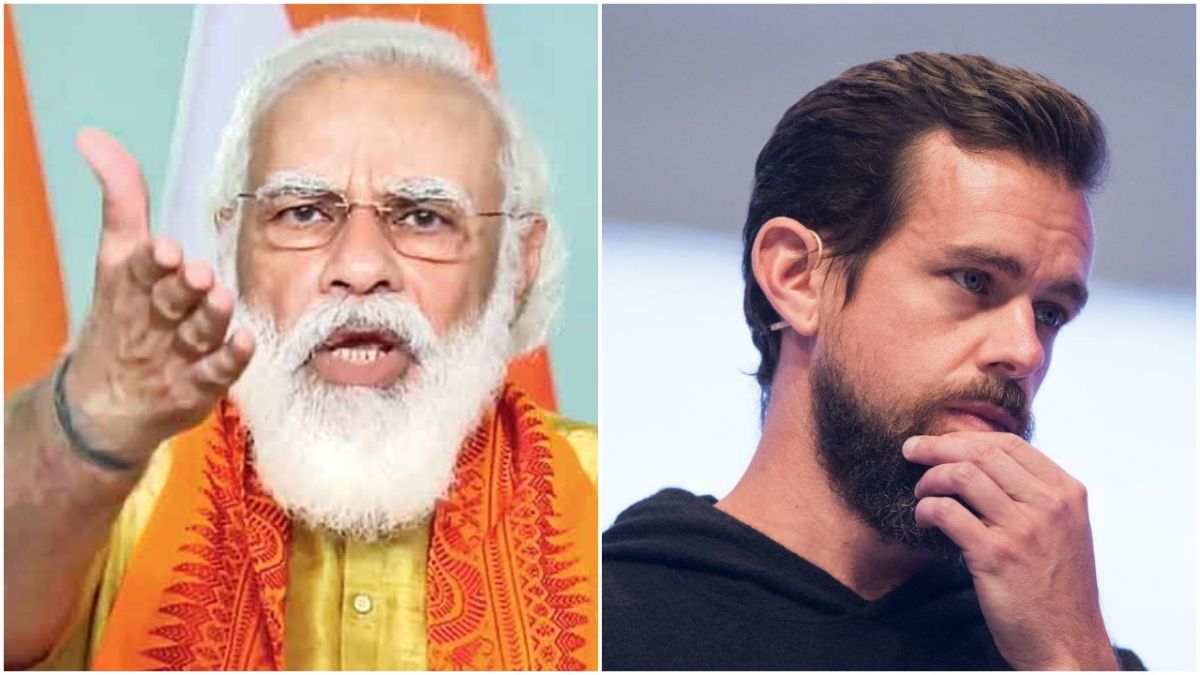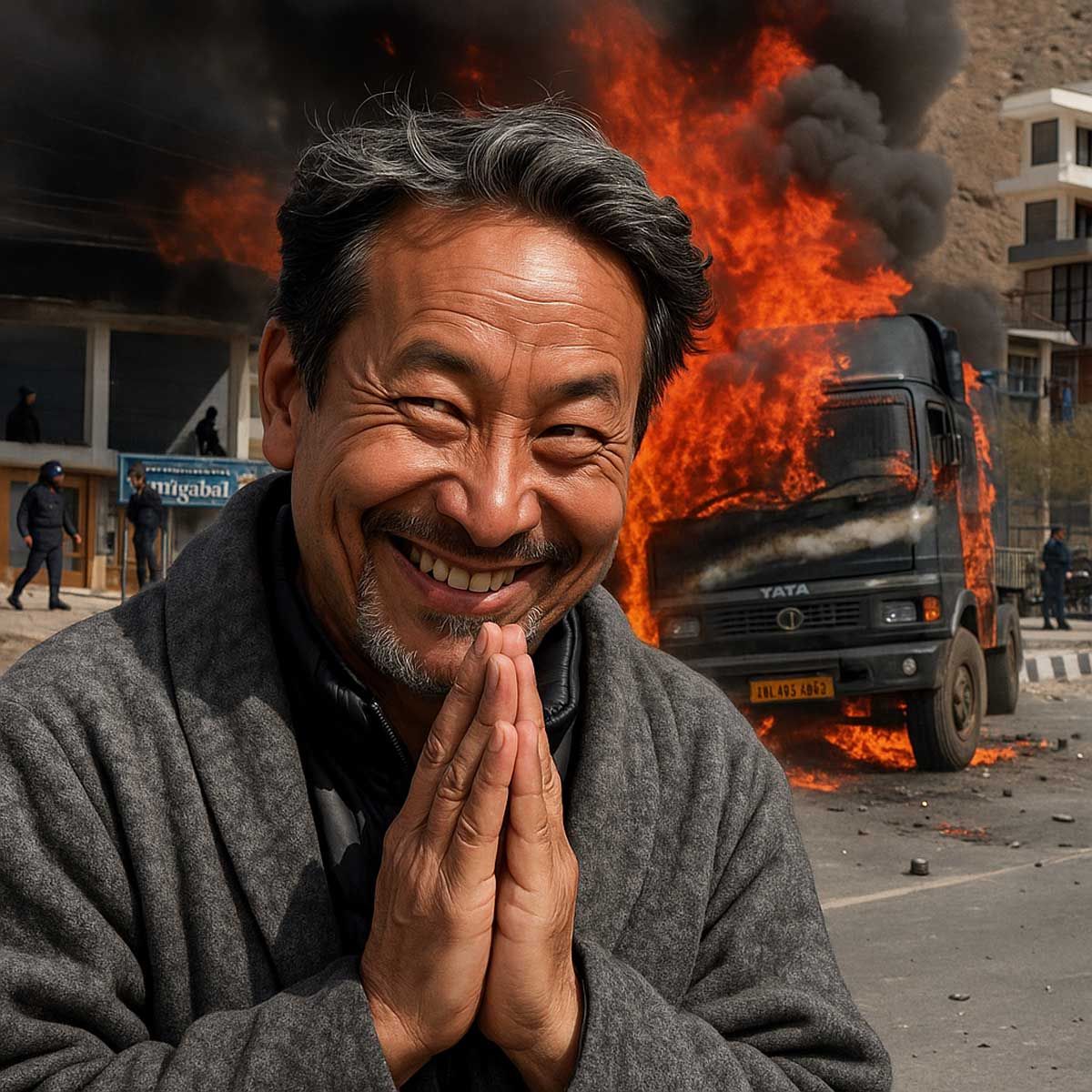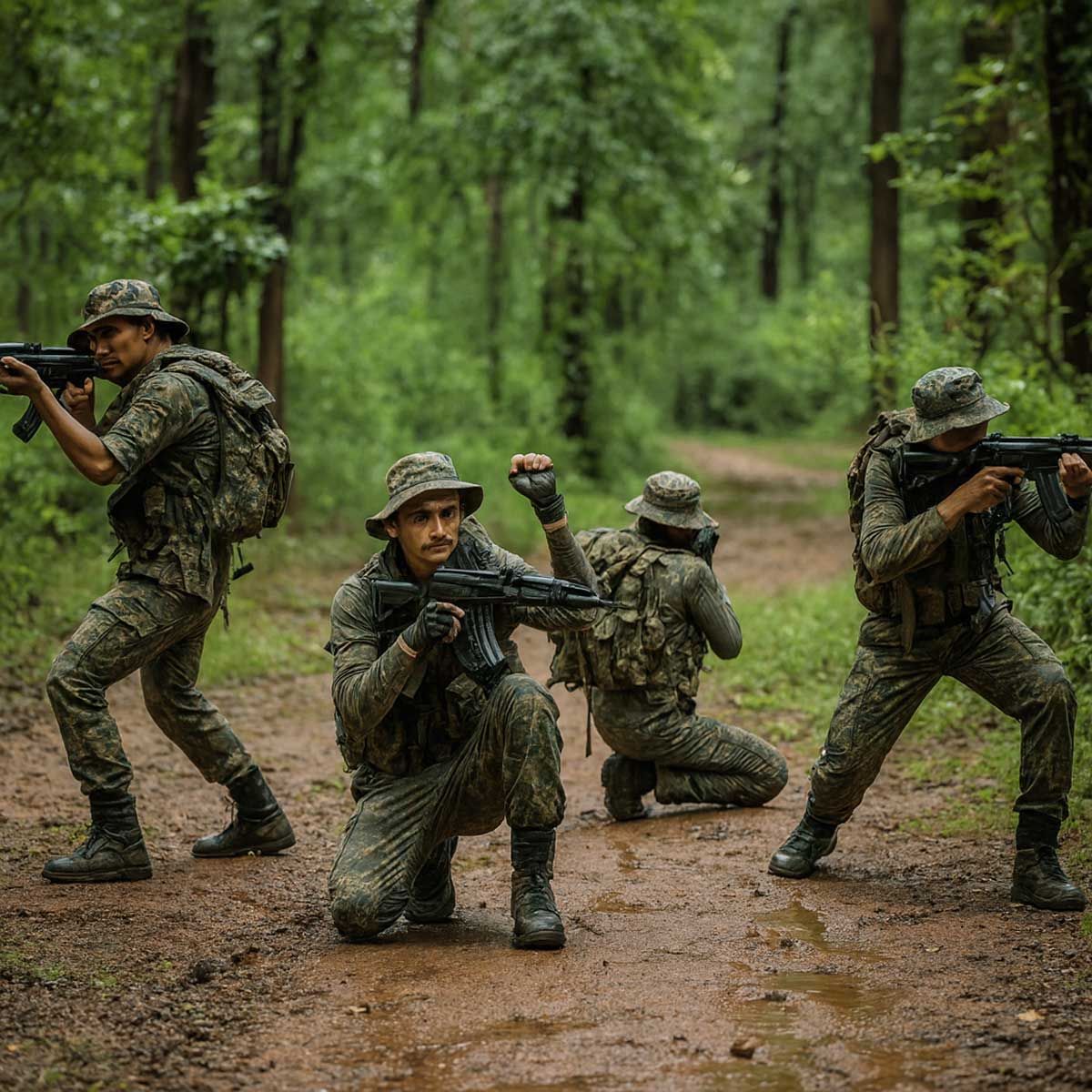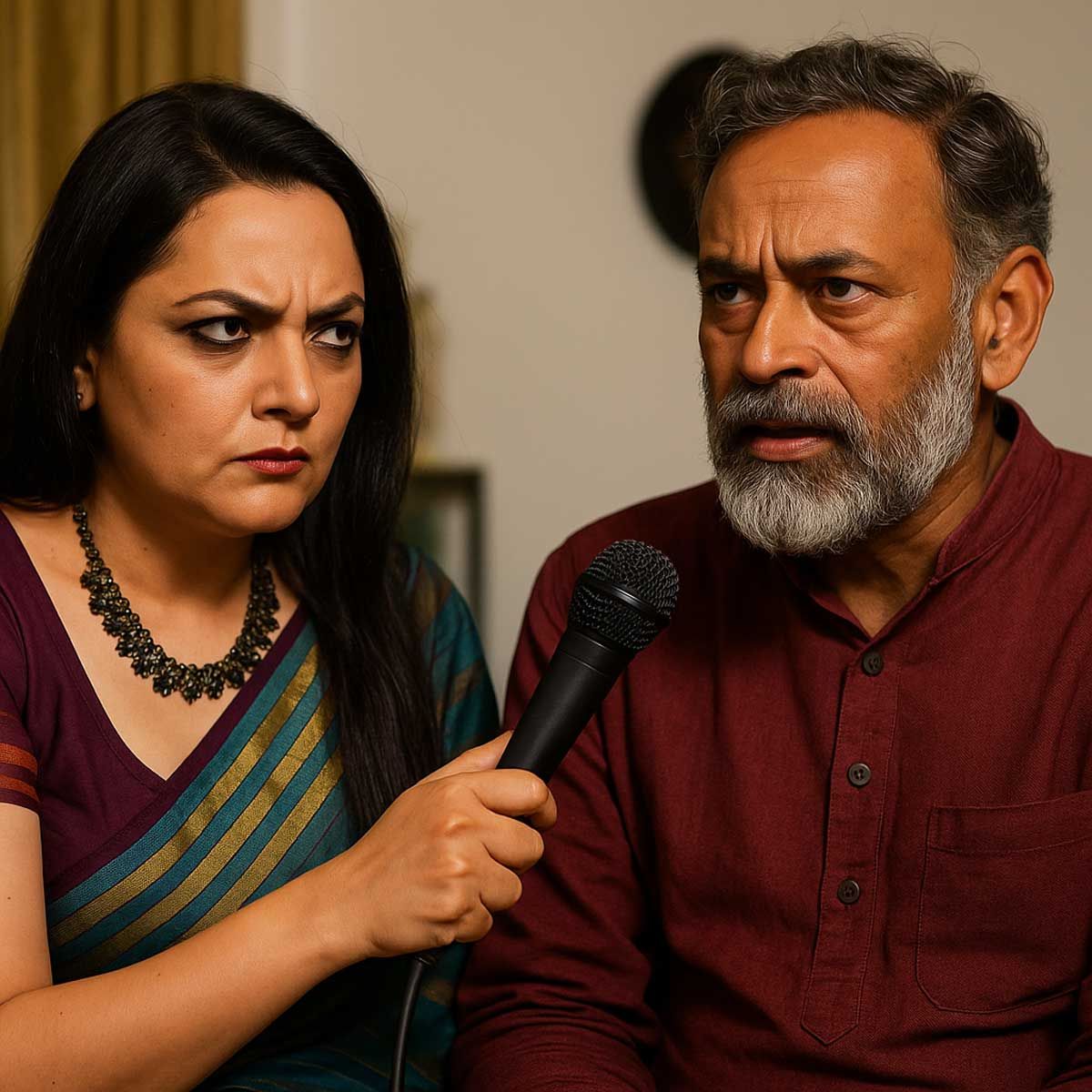More Coverage
Twitter Coverage
Satyaagrah
Written on
Satyaagrah
Written on
Satyaagrah
Written on
Satyaagrah
Written on
Satyaagrah
Written on
JOIN SATYAAGRAH SOCIAL MEDIA
The stand-off with Twitter is not about politics, it’s about a ‘messiah syndrome’: Twitter Vs GOI over free speech and local law

Page 1 of 2
India will be home to one billion people online by 2023, and this is a formidable number. For social media companies, this is a market they would want to tap and improve their revenues. For publishers and other marketing experts, it means a huge digital market. For individuals, it is a space to voice their ideas and opinions and network.
However, for the ones with bigger clout across social media platforms, say the political parties and their leaders, it is a huge voter base to reach out to.
In India, social media platforms have now become a battleground for information wars. The recently surfaced toolkit alleged to have links with the Indian National Congress reflects the scale at which these battles are fought. They are a place to influence people, policies and politics.
Back in 2009-2011, when Twitter spread fast in India along with mobile data and smartphones availability, the liberal crowd was amused with it. They were actually among the first ones to adopt it, with Shashi Tharoor’s follower count being the talk of the town. He was the most followed Indian politician on Twitter in those days. There were news articles based on accounts he had chosen to follow.
Incidentally, Twitter got a lot of free promotion in the mainstream media, and thus common people became aware of its existence after Tharoor got into a couple of controversies thanks to his tweets. Those controversies almost took his job as the union minister – the first was the ‘cattle class’ controversy arising out of his own tweet in 2009, and then some tweets by former IPL commissioner Lalit Modi in 2010, which hinted at his personal and financial relationship with Sunanda Pushkar, whom he later married.
Though Tharoor had some early troubles, Twitter remained a nice playground for liberals until after the ‘other side’ started using it really effectively. This shift didn’t take too much time actually. By 2011, along with Anna Hazare DP sporting youngsters, Twitter was densely inhabited by the ‘Hindutva types’ too.
The platform democratized the narrative. People who had no chance of getting an article published in a mainstream media outlet earlier could now get a distribution platform that was fast matching the reach of the mainstream media. Not just reach, even impact. It broke all barriers that existed in the mainstream media publishing – of language (primarily of style), of access (you didn’t need to know an editor or hire a PR agency to get an audience), and most importantly, of ideology (you didn’t need to toe the same old liberal line to get published).
Those who couldn’t even get a ‘letter to the editor’ published, were now sending out witty retorts to such editors and building their own readership. The narrative was all set to be inverted because the process of building the narrative was getting inverted. Consequently, the liberals started getting uncomfortable with this inversion.
In August 2012, the then Government of India blocked a bunch of Twitter handles – many were ‘Hindutva types’ among those blocked – it remains one of the earliest attempts to censor Twitter by the government. The UPA government simply bypassed Twitter and asked the ISPs (Internet Service Providers) to block access to those Twitter accounts. It created a massive furor, but it also had tacit support from some quarters of liberals.
Many of them justified this blocking, saying the accounts were indulged in ‘hate speech’ on communal lines. Founder and Editor of one such liberal outlet ‘Hardnews’ that supported the decision of the Manmohan Singh government to block Twitter accounts of ordinary citizens, is now an office-bearer of Editor’s Guild of India.
While not all among liberals openly supported the government’s decision to block these Twitter handles, many of them, especially the talking heads in the media, started a concerted narrative about ‘trolls’ on Twitter and how that was a real problem that needed solving. They wanted Twitter to provide them ‘safe spaces’ and government to go after such egg-DP ‘criminals’ who had the audacity to say unpleasant things to them.
Neither of those wishes was fulfilled immediately. Twitter was too busy acquiring new users while the UPA government was too busy with new scams. However, to be fair to the UPA government, they did try, by coming up with Section 66A of the IT Act. But it was too brazen and unsophisticated. The wordings of the law gave away that the idea was to have a pro-government thought control rather than ‘pro-liberal’ thought control, which (thought control) is what liberals ultimately aim for.
At that point, liberals believed in sophistication – they didn’t have Swara Bhaskar types as their heroes, basically – so they couldn’t openly dance in support, though many, especially journalists, did try to argue that such laws were needed to control ‘trolling’ on Twitter. It didn’t work, and Twitter continued to democratize narrative where thought control was not easy.
In July 2013, Narendra Modi overtook Shashi Tharoor to become the most followed Indian politician. Most liberals mocked the development and downplayed it, saying stuff like ‘Modi can surely become the Prime Minister of Twitter’. Next year, Modi took oath as the Prime Minister of India. Silence. Sannata. Shock.
Desi liberals woke up from this shock, and thus they became ‘woke’. All of them realized that they need to get control back on tools and platforms that help build the narrative. They were lucky that in 2016, Donald Trump won the Presidential elections in the USA, so the global left too realized this need to control the new technologies and social media platforms.
In the next 4 years, the liberal control on the big tech was complete. Donald Trump was actively suppressed and censored; that he was a loudmouth and reckless too helped that process, but clearly, he was ‘marked for it’, as various leaks since then have revealed how there was active collaboration between the liberal media and the big tech. Currently, he is banished from both Twitter and Facebook.
But that couldn’t do anything to Narendra Modi, who meanwhile won another election in 2019. Or let’s say, the global left was yet to focus all their energies on Narendra Modi. That seems to be changing. The global left felt like a messiah who saved US from Trump. But a messiah just can’t stop after converting the original land. He and his apostles must head to new lands to preach, convert, and civilize.
India is a fertile ground for this conversion. Or let’s say, India is a fertile ground for this conversion too.
The desi liberals in India were anyway a carbon copy of the western liberals. All that they have done is to replace “White” with “Brahmin” in various treatise and feel good about their intellect. No wonder some of the ‘best’ works of liberal filmmakers are remakes of Hollywood hits.
Further, the desi liberals know that their domestic heroes are no longer seen as towering intellectuals who are non-partisan scholars. I mean what else to except with Swara Bhaskar being your hero. Forget her, even someone like Prashant Bhushan is now reduced to a lowly troll on Twitter, who takes a break from inane tweeting to tweet against masks and vaccines in the middle of a raging pandemic.
Modi winning in 2019 again, and getting a higher vote share as well as bagging more seats, is one of the manifestations of the fact that the desi liberals are not able to capture the mind-space of the ordinary Indians, and thus they desperately need a foreign messiah. Indians still value ‘foreign maal’ and ‘white skin’ so this strategy makes sense too. On a side note, I think liberals shouldn’t go too aggressive on fairness creams; till Indians love white skin, their propaganda will find easy takers.
Point is that having a ‘foreign’ aspect is now integral to the liberal narrative since Modi’s 2019 victory. It’s not a coincidence that journalists who were losing clout in domestic circles were suddenly given regular bylines in The New York Times, Washington Post, Time magazine, etc. One poor journalist even got scammed, if her claims are to be believed, thinking she has been appointed an Associate Professor at Harvard University. It doesn’t matter if the byline reads Rana Ayyub or Rabindar Atoot, what matters is the ‘foreign’ part in the publication.
 Support Us
Support Us
Satyagraha was born from the heart of our land, with an undying aim to unveil the true essence of Bharat. It seeks to illuminate the hidden tales of our valiant freedom fighters and the rich chronicles that haven't yet sung their complete melody in the mainstream.
While platforms like NDTV and 'The Wire' effortlessly garner funds under the banner of safeguarding democracy, we at Satyagraha walk a different path. Our strength and resonance come from you. In this journey to weave a stronger Bharat, every little contribution amplifies our voice. Let's come together, contribute as you can, and champion the true spirit of our nation.
 |  |  |
| ICICI Bank of Satyaagrah | Razorpay Bank of Satyaagrah | PayPal Bank of Satyaagrah - For International Payments |
If all above doesn't work, then try the LINK below:
Please share the article on other platforms
DISCLAIMER: The author is solely responsible for the views expressed in this article. The author carries the responsibility for citing and/or licensing of images utilized within the text. The website also frequently uses non-commercial images for representational purposes only in line with the article. We are not responsible for the authenticity of such images. If some images have a copyright issue, we request the person/entity to contact us at This email address is being protected from spambots. You need JavaScript enabled to view it. and we will take the necessary actions to resolve the issue.
Related Articles
- India successfully carried out the test firing of a new missile of the Agni series known as Agni-Prime
- Government of India gives Twitter "one last notice" as "gesture of goodwill" to comply with IT Rules, 2021
- Srinagar: Top LeT commander, 1 Pakistani terrorist killed in encounter, AK-47s recovered
- Twitter says it removed verified badge from Vice President Venkaiah Naidu’s account due to ‘inactivity’: Here is why their argument is flawed
- ‘Don’t use IMA to propagate any religion’: Read what the Delhi court said slamming IMA President John Rose Jayalal
- Just after the verification badge of VP of India was restored, Twitter removes verification of RSS Chief Mohan Bhagwat, bureaucrat
- Twitter rewards an Islamist org, set to be banned by India, with a verified blue tick: Here is what PFI has done in the past
- Giant hypocrite: Activist confronts Twitter CEO over censorship, asks why he ‘hates Jews and Conservatives’
- Communist rockstar KK Shailaja displays ugly Hinduphobia in Kerala assembly
- Indian govt won’t be any different from British if Hindus can’t manage their own temples
- Kejriwal Govt Inflated Delhi's Oxygen Demand By Four Times During Second Wave Peak: SC Oxygen Audit Team
- Dear NSUI, Bhagat Singh And Subhas Chandra Bose Admired Savarkar And His Ideas
- NCPCR Asks Delhi Police To File FIR Against Twitter; Seeks Ban For Kids Until Deemed Safe
- Modi govt invites applications from non-Muslim refugees from Afghanistan, Pakistan, Bangladesh to grant Indian citizenship
- Remembering Sushant Singh Rajput: An actor with a difference




























